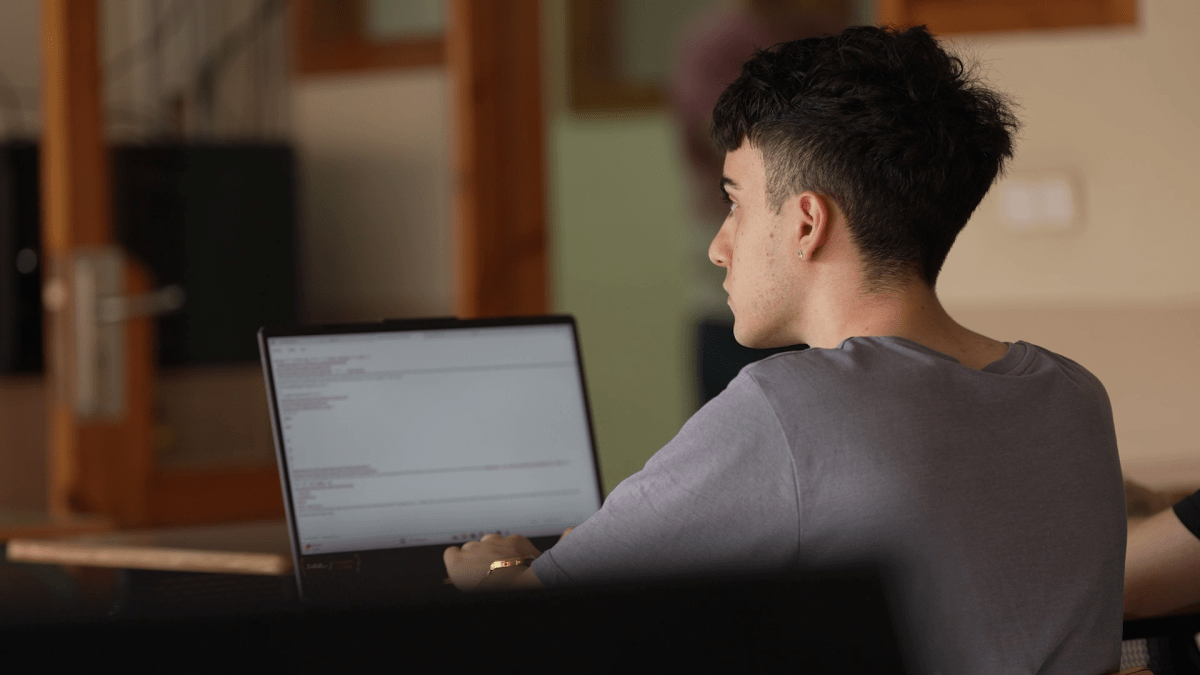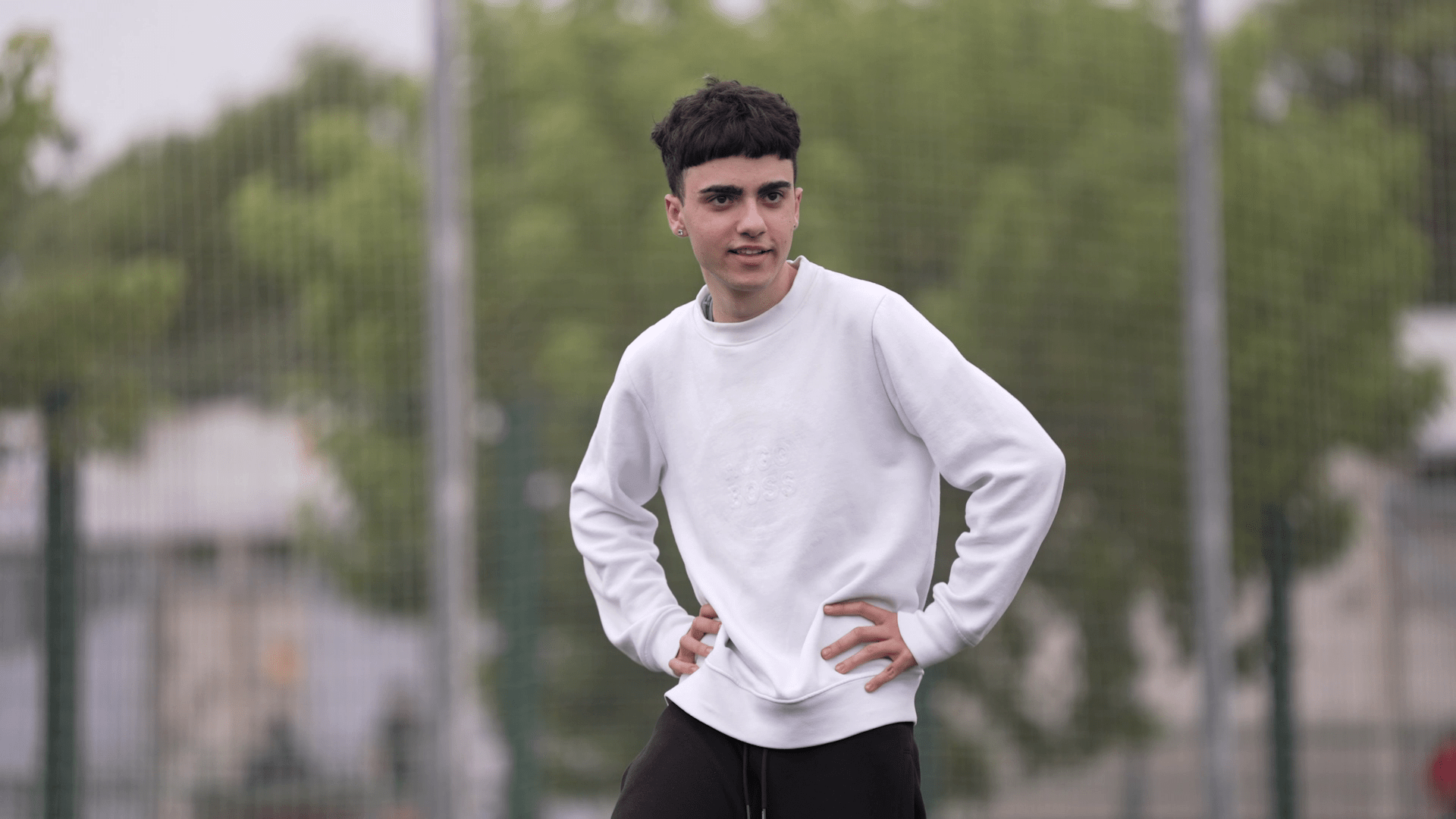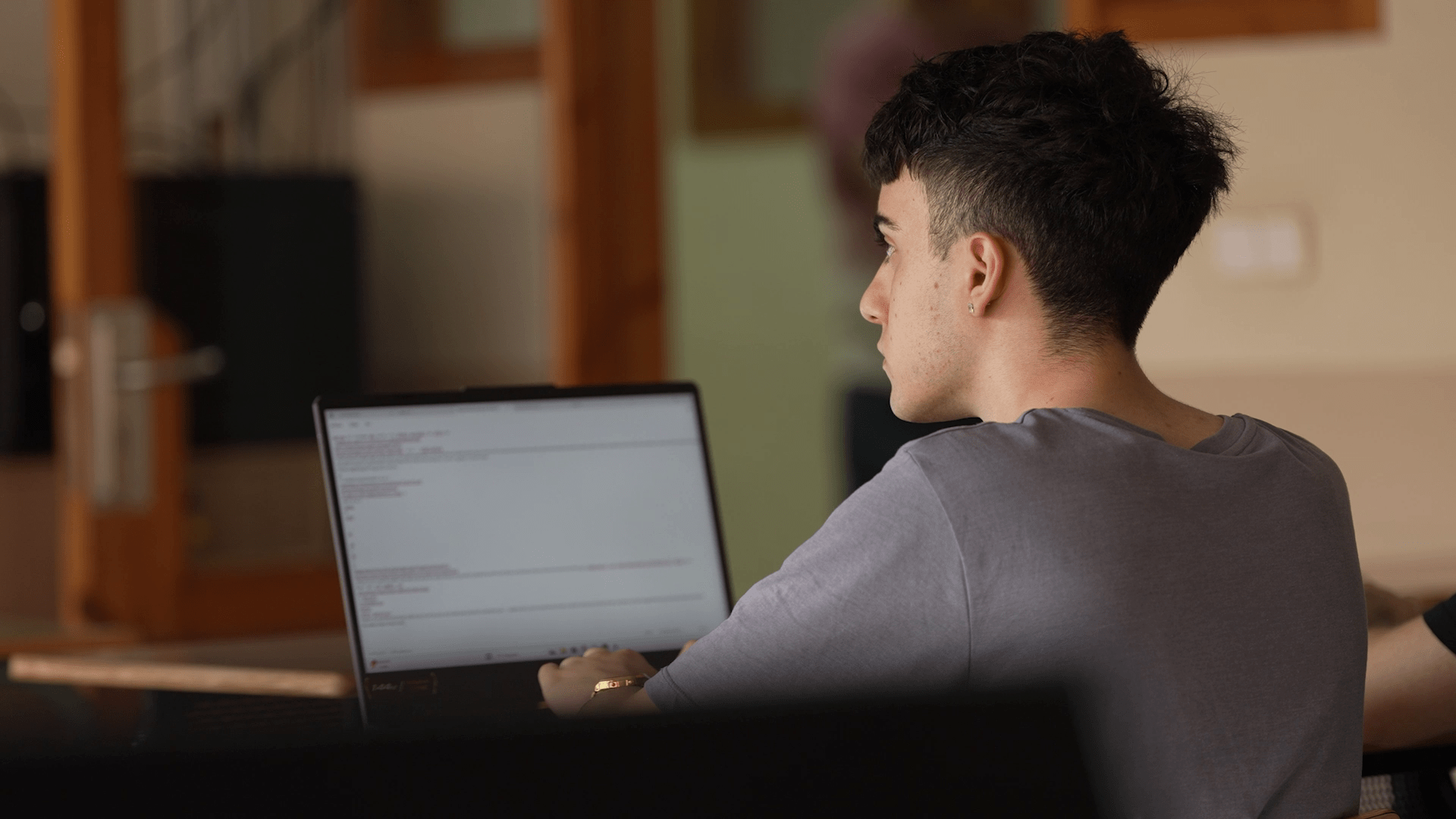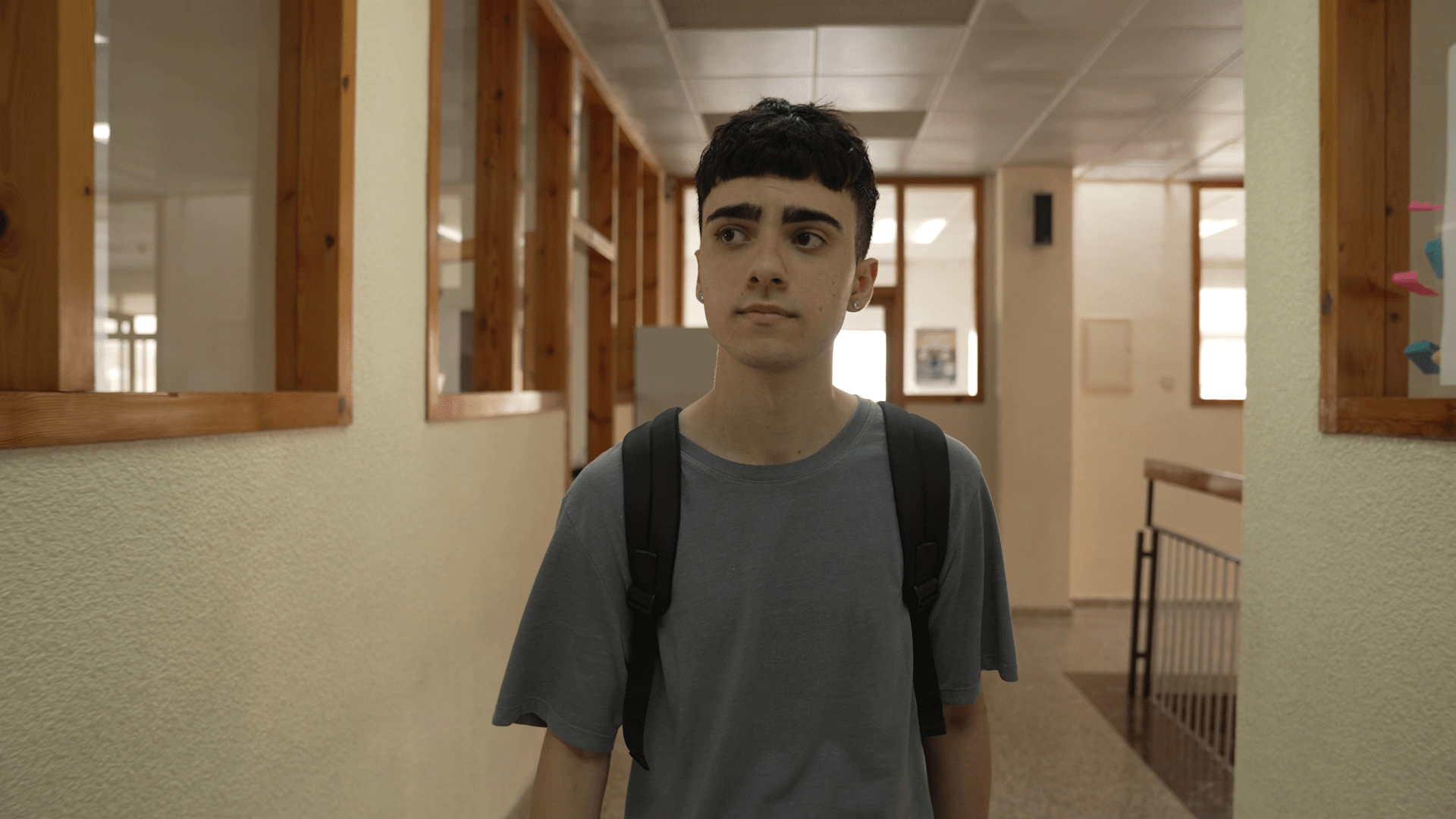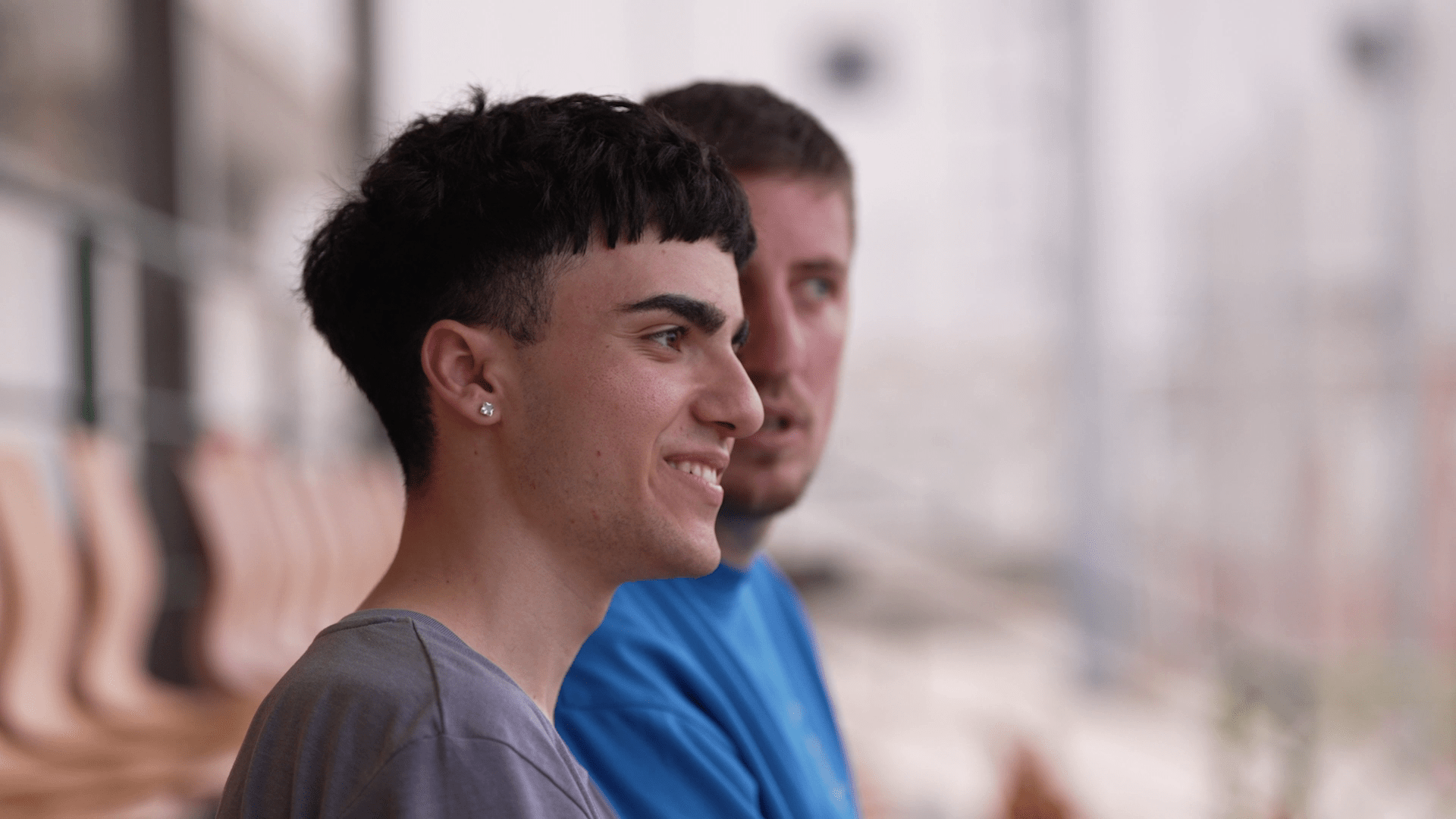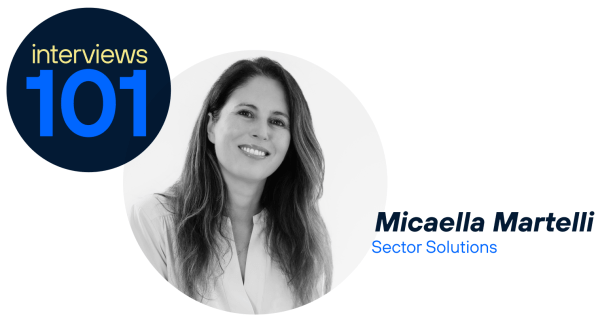‘The message I want to convey is that by investing in research, health and education we can improve people’s lives. Eric Tello was so forceful when he summarised his day-to-day life of living with a rare genetic disease, progressive bone heteroplasia.
With testimonies from his family, from himself and from people in his academic environment, we will get to know Eric’s story.
Family support
Jordi Tello, Eric’s father and Telefónica employee in Tarragona, defines his son as ‘a born fighter’, a ‘very constant person, a fighter’ who is persistent until he achieves his goals.
For her part, Esmeralda Valiente, the young man’s mother, defines him as someone who is ‘very happy’ and who always pushes forward under the premise that ‘you have to fight day by day’ with the optimism of knowing that, if there has been a bad day, the next one will be better.
His brother Álex exemplifies this in that ‘he doesn’t get tired’ and that whatever stone or wall is put in front of him, ‘he jumps over it’. ‘A guy who doesn’t give in to anything’, he sums up.
Eric himself values his family’s support, recognising that ‘without them he would not be able to do anything’, as well as having been taught that ‘you should never give up’.
Relationship with technology and computers
Passionate about computers, it was precisely the idea of a technological solution for patients with illnesses that require constant medical assistance that led him to contact Telefónica.
Specifically, a bracelet with a QR code to be able to download the patient’s history easily anywhere and under any circumstances, thus facilitating possible faster and more efficient action.
Although it is true that similar solutions were already on the market, this initiative serves to exemplify and show Eric’s interest in everything related to new technologies and information technology.
Other hobbies: relationship with sport because of the disease
In addition to computers, Eric’s other main hobbies are video games and football, although he can hardly play football due to the severe pain associated with the disease.
For this reason, his sporting activity is currently limited almost exclusively to physiotherapy and gymnastics adapted to his circumstances.
Reflections on education
One of Eric’s pleas is for an inclusive education that allows profiles like his to be able to follow the course of classes without major inconveniences.
His teacher and tutor, Marc Royo, explains that Eric has suffered hospitalisations that have even lasted several weeks, a period in which he has been given support to the point of taking online exams or practicals via the school’s intranet.
Along these lines, Jordi, Eric’s father, reasons that ‘in order to provide continuity and not encourage dropout, it would be very important to provide training with the new means of communication that technology provides’.
Fernando Sánchez, another of Eric’s teachers in Reus, agrees on the importance of digital education, although he warns that in situations like this ‘the main problem is the teachers’ lack of habit and ignorance’, which is why he advocates having “more patience and empathy with the pupil”.
What is progressive bone heteroplasiasis?
Progressive bone heteroplasia is defined as a genetic bone disorder characterised by the progressive formation of extra skeletal bone and is very rare. In fact, only six dozen people are diagnosed worldwide, of which only four are in Spain, counting Eric.
It usually presents at an early age through cutaneous ossification, also affecting the subcutaneous and deep connective tissue, involving muscles and fascia.
Progressive bone heteroplasia can be distinguished clinically by the profound and progressive nature of heterotopic bone formation, i.e. bone growth in abnormal locations.
A pathology that, outside of the more specific clinical terminology, Eric himself defines as ‘a disease that causes bone to grow under the skin and stiffness in the muscles of different parts of the body’.
